In-depth – A dead second to die for: A. Lange & Söhne Richard Lange Jumping seconds
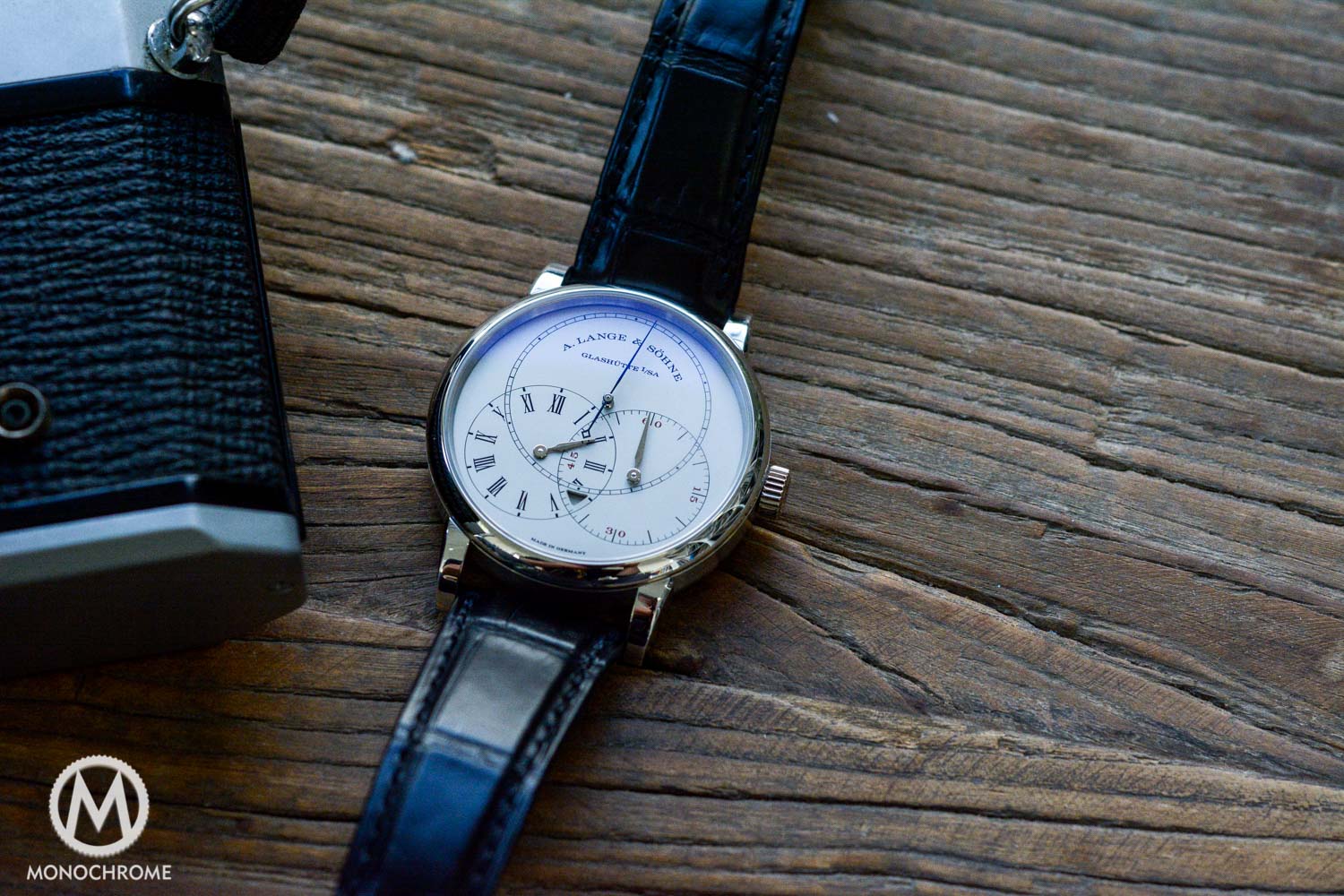
There is something definitively down to earth about the minimalist A. Lange & Söhne Richard Lange Jumping Seconds. The pure, meticulous design is splendid; striking visual simplicity at its best. But there is a lot more than meets the eye. Underneath its dial beats a superb and highly complex movement with dead second, constant force mechanism, zero-reset and an end-of-power reserve indication, all crafted in harmony with the Saxon manufacture’s ethos of no compromise.
Introduced in 2006, the Richard Lange collection connects the brand with its tradition of scientific observation watches. In this respect, the introduction of a jumping seconds (also known as dead second or seconde morte in French – read our technical perspective here) in this collection is not a surprise. Even still, discovering this model was definitely one of the highlights of SIHH2016. And now the first pieces are being delivered to the boutiques and retailers.
In a mechanical watch the second hands moves forward in increments of a fraction of a second depending on the frequency of its balance, generally in a sweeping motion. Jumping second watches however mark the passing of each second with discreet jumps, making it easier to read elapsed time. This is especially helpful when you are trying to synchronize watches or time events with precision. The classic example is of course the doctor measuring a patient’s heart beat over a given number of seconds.
Reihnard Meis’ Lange & Söhne monograph mentions that the brand developed a mechanism for a central independent jumping second as early as 1867 – although at that time it could only be stopped, not reset. This mechanism was patented in 1877 but in a modified version with its second-mechanism on top of the three-quarter plate. The precision timepieces fit with such movements had ‘similar indications as an observatory pendulum clock, but was portable’.
The movement is all the more impressive given that the jumping second is combined with a constant force mechanism in the form of a remontoire and a zero-reset mechanism (the principles of which are explained below). It also features a neat end of power reserve indication: a tiny triangular cut-out in a dial turns red 10 hours before the power reserve is exhausted, reminding the owner to rewind the watch.
Inner beauty – At the rear of the watch, the large movement (33.6 x 6mm) with three-quarter plate is magnificent – as always. It is finished in compliance with Lange’s strict standards. Superb beveling, uniform stripes are applied to the bridges made of untreated German silver. The cock is finely engraved with the brand floral pattern and features a swan-neck. The Lange L094.1 caliber runs at 21’600 vibrations per hour and comprises 390 parts, 50 jewels including 8 set in screwed gold châtons.
The movement is framed by an elegant platinum case (released as a 100-piece limited edition). It is 39.9mm in diameter, a moderate size which wears extremely well. It is complemented by a high quality, hand-stitched alligator strap with pin buckle.
The solid silver dial with its seconds-regulator is unmistakably Lange. It is pure, geometric, rigorous but deconstructed. The hours are indicated at 8 o’clock on transferred Roman numerals – minutes at 4 o’clock with beautiful red numerals for the quarter hours. The large second counter steals the show while enhancing legibility. The hour and minutes hands are rhodium-plated gold while the second hand is blued steel.
Jumping seconds and constant force mechanism
The design of the movement features an arrangement that distributes constant-force generation and the seconds jump to two wheel trains and allows them to interact.
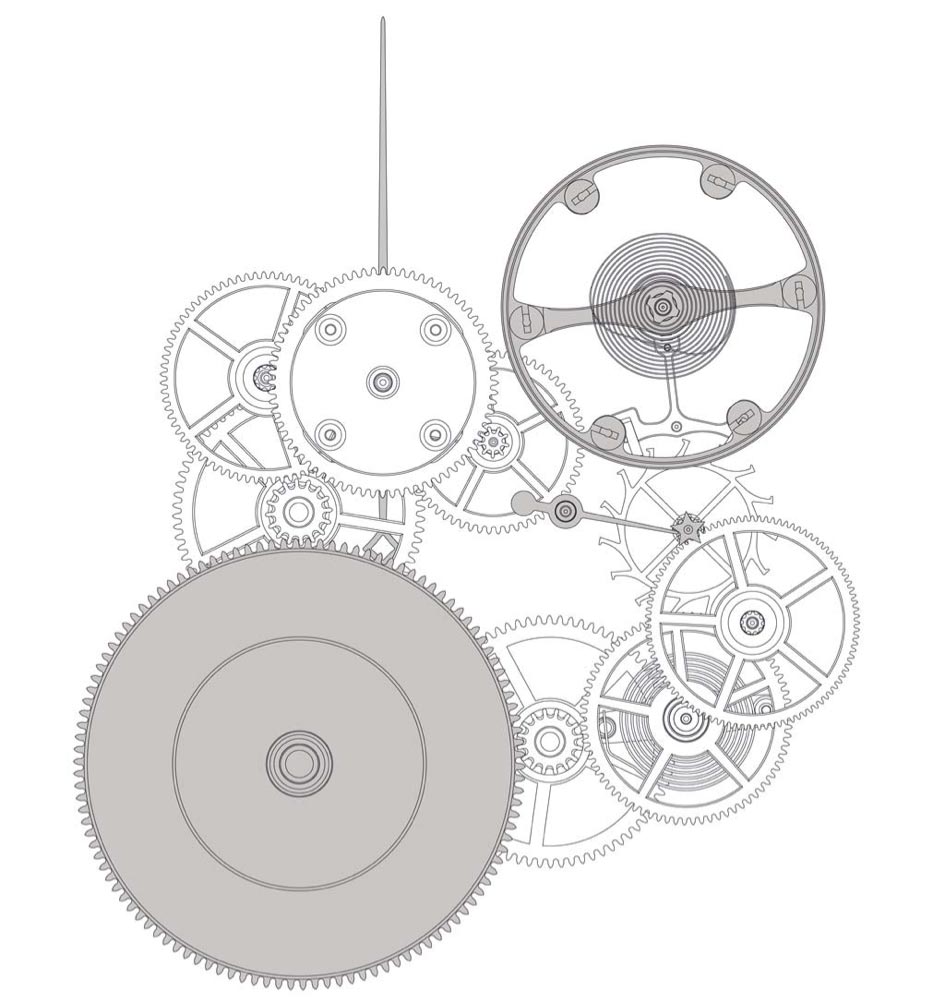
The two wheel trains of the Richard Lange Jumping seconds. Right from the mainspring to the oscillator with the remontoire. Left for the jumping seconds with a so-called flirt which connects with a star mounted on the escape wheel to drive one second increments.
One wheel train from the mainspring to the oscillator features a remontoire to deliver constant energy to the escapement. The remontoire is visible through a cut out in the train bridge and consists of a secondary spring periodically rewound by the main power source to even out variations of the drive force delivered to the escapement. This ensures a constant amplitude, hence constant rate, across the entire 42-hour power reserve despite the waning torque provided by the barrel’s mainspring.
(For more information, read our technical guide about Constant force mechanisms here)
A second wheel train powers the jumping second mechanism. A five point star is mounted on the escape wheel arbor and rotates once every five seconds. Every second, one point of the star frees the so-called flirt which then rotates instantaneously 360° until it is arrested by the next point of the star. This instantaneous rotation allows the wheel train to drive a discreet jump of the second hand to the next full-second.
Zero-reset Mechanism
The Richard Lange Jumping seconds features a zero-reset mechanism enabling the movement to be stopped and the seconds hand to be reset to the zero position. This useful function gives practical to-the-second precision setting and means the watch can be restarted at a time signal.
The zero-reset mechanism makes smart use of a heart-shaped cam (just like those used to reset chronographs). Pulling the crown activates levers to block the balance wheel with an arresting spring. The reset hammer falls on the heart cam to instantly reset the second hand. At the same time a clutch separates the fourth wheel arbor from the wheel train to allow frictionless zeroing. When the stem is pushed back in, the arresting spring releases the balance wheel and reconnects the fourth wheel to restart the watch.
Conclusion
The A. Lange & Söhne Richard Lange Jumping seconds is another superb, technical and elegant creation, true to the inimitable pedigree of the venerable Saxon manufacture. Its look is clean, simple and understated but the watch is highly complex with its remontoire and dead second – although this combination is not unprecedented (for instance, François-Paul Journe’s remontoire d’égalité or Arnold and Son’s Constant Force Tourbillon are really worth a close look too by the way). The addition of the zero reset mechanism is another neat function. Needless to say it is perfectly crafted, the Lange way. Priced at € 79,800 Euros, it is naturally not for every pocket but this is to be expected for the exclusivity and impeccable quality of the brand’s products.
Technical specifications – A. Lange & Söhne Richard Lange Jumping Seconds
- Case: 39.9 x 10.6 mm – platinum – sapphire crystal on the front and on the back – 30m water resistant
- Movement: L094.1 with manual winding – 33.6 x 6 mm – 42h power reserve – 21,600 vibrations/h – hours, minutes, jumping seconds, zero-reset mechanism, end of power reserve indication, constant force mechanism.
- Strap: alligator leather strap on pin buckle
- Reference: 252.025
- Limited edition of 100 pieces
- Price: € 79,800 EUR

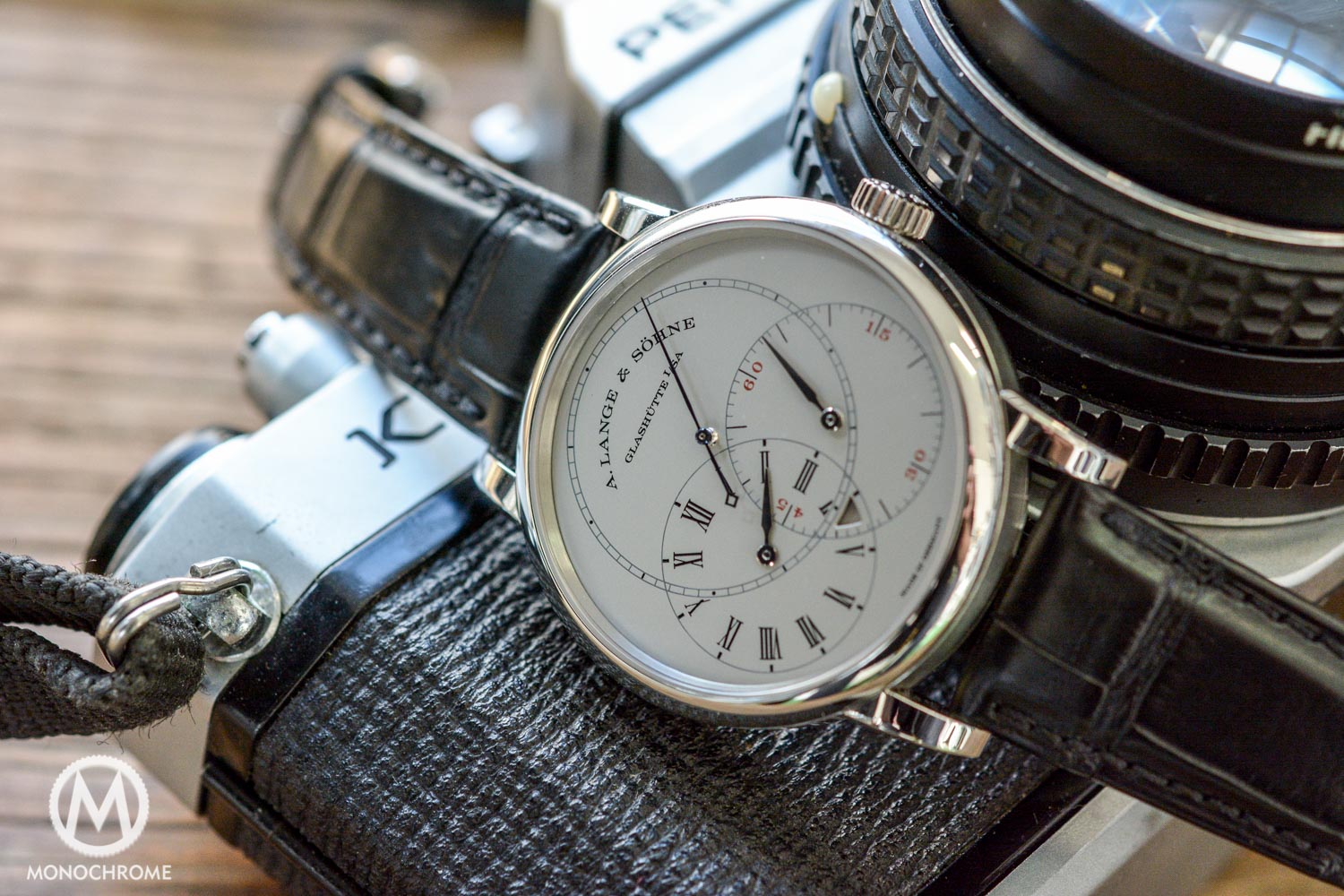
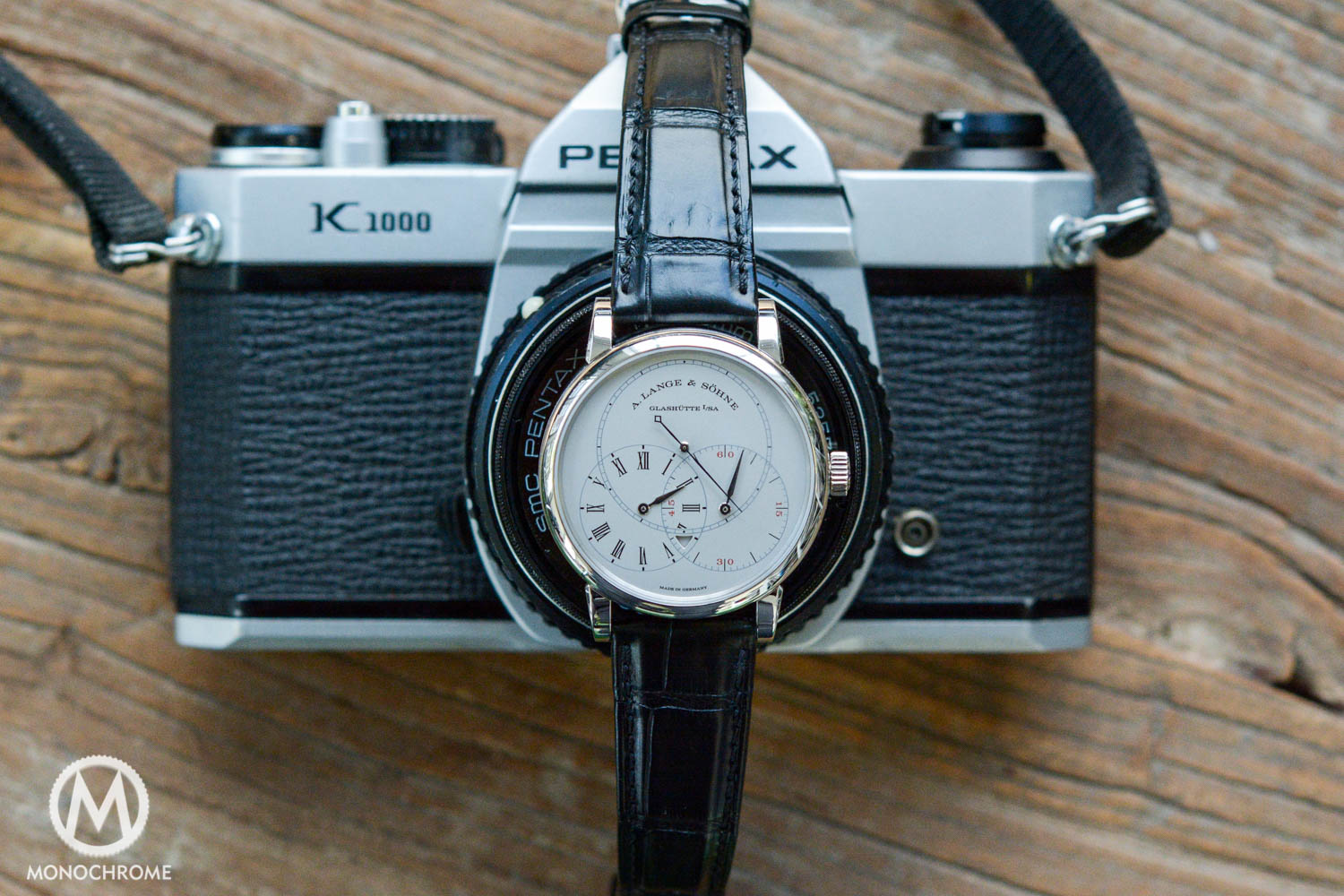
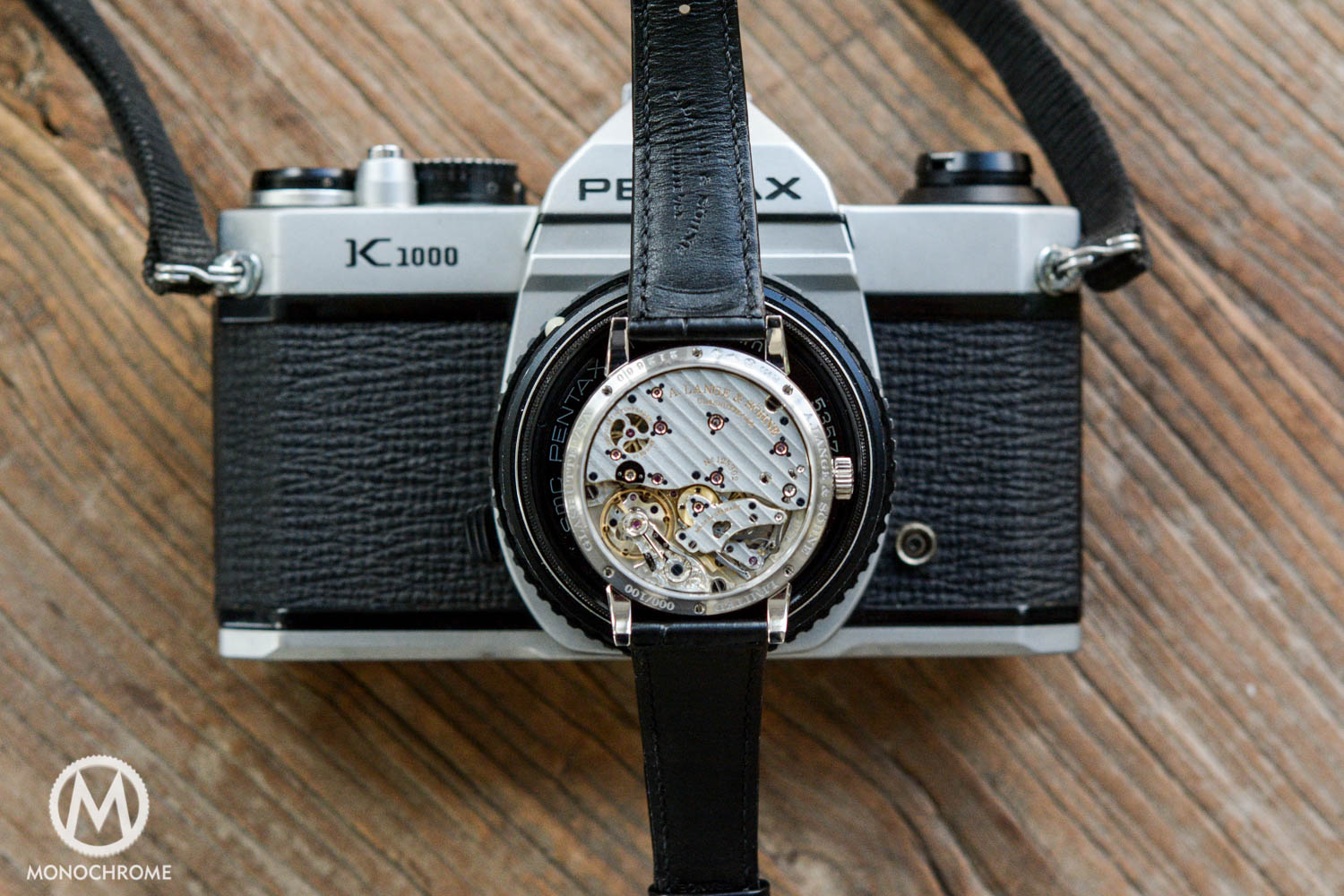
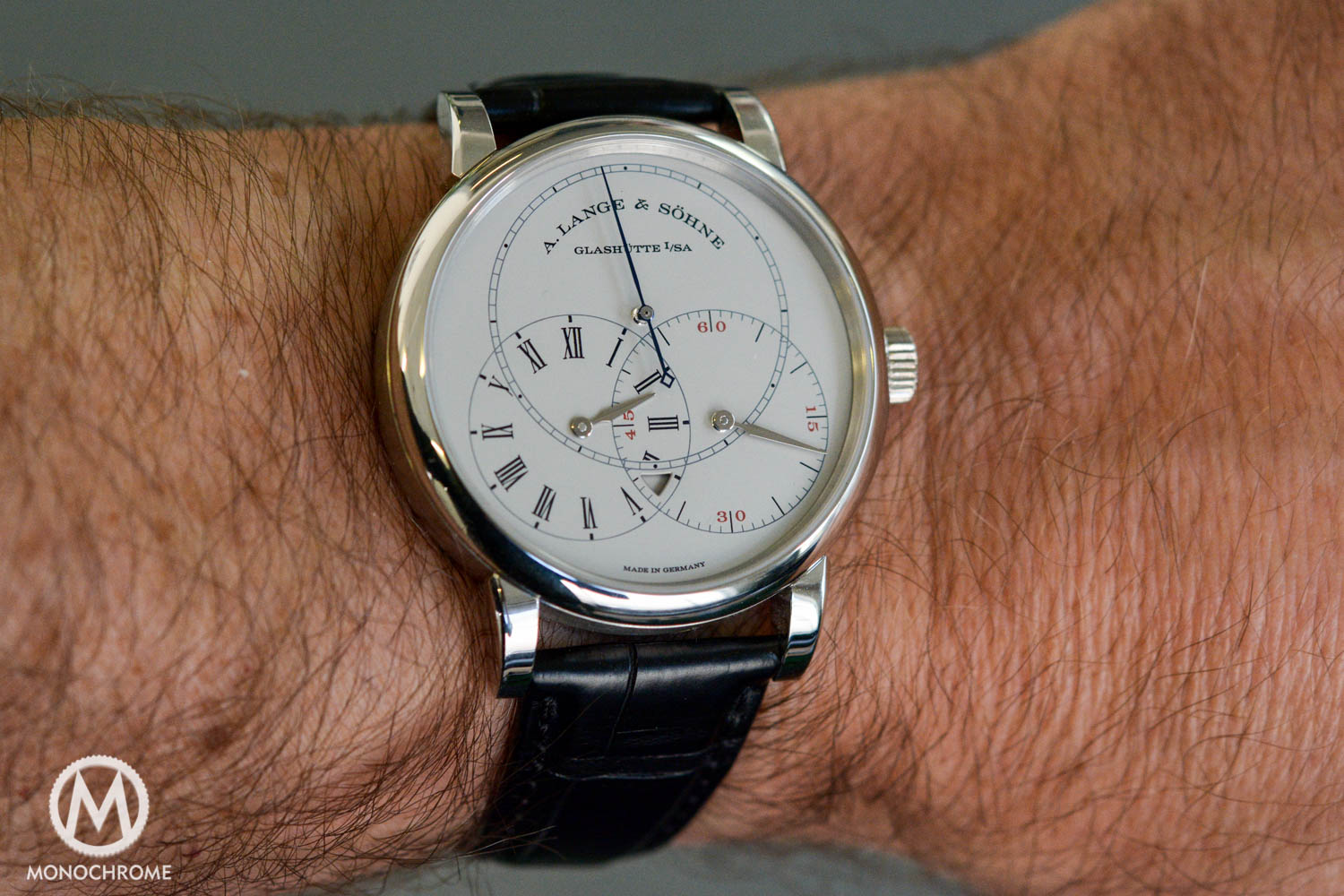
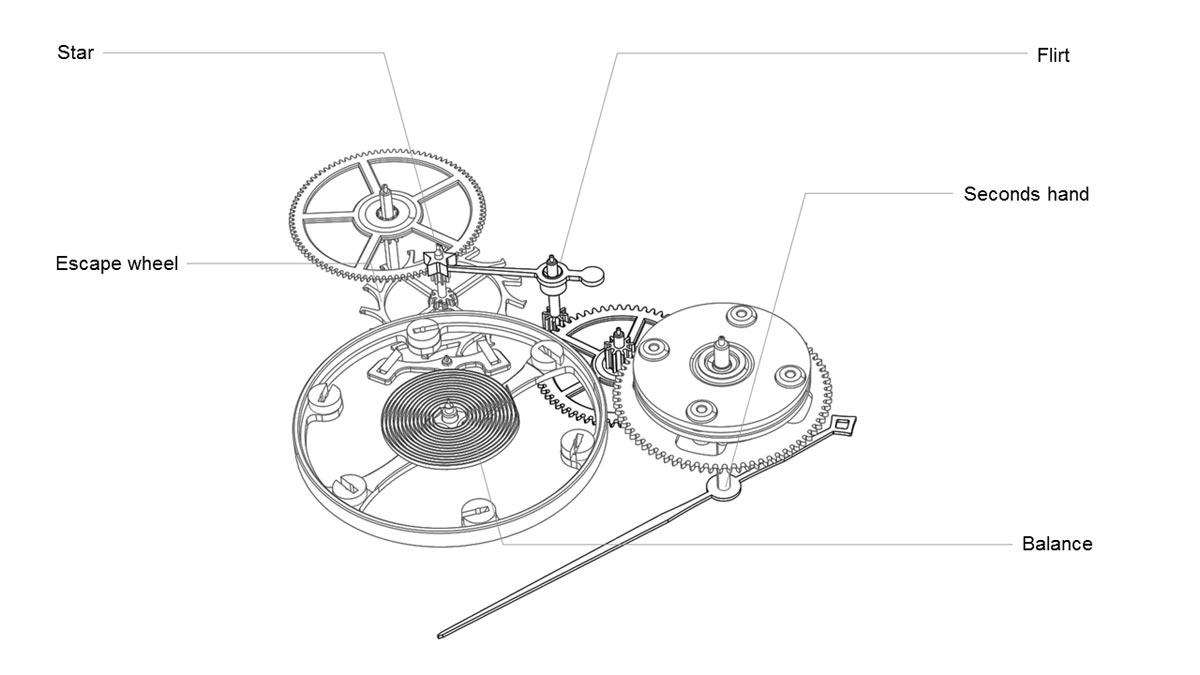
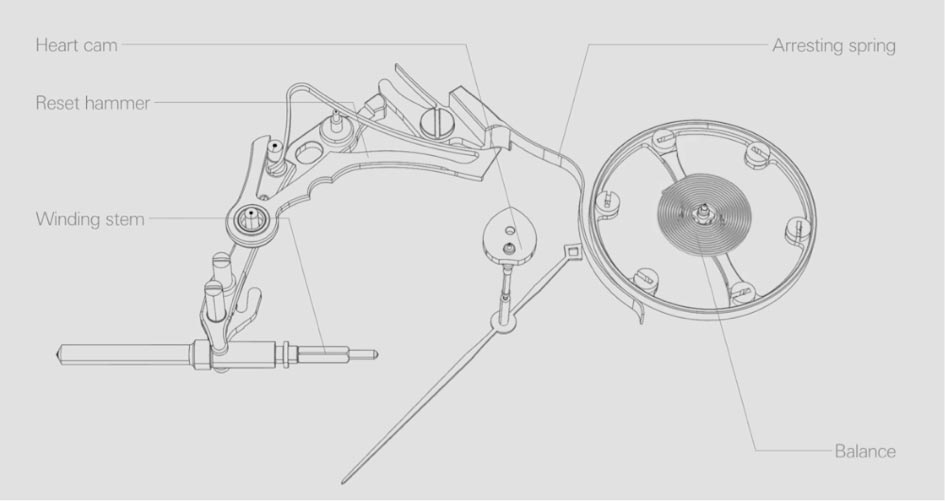
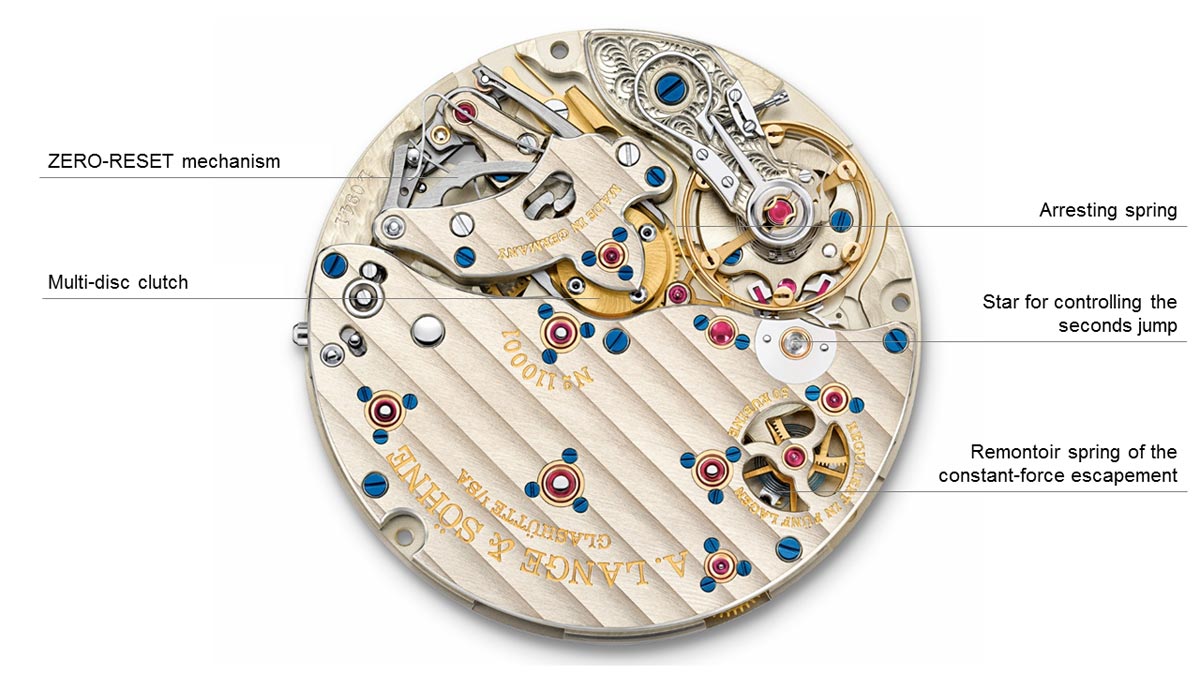
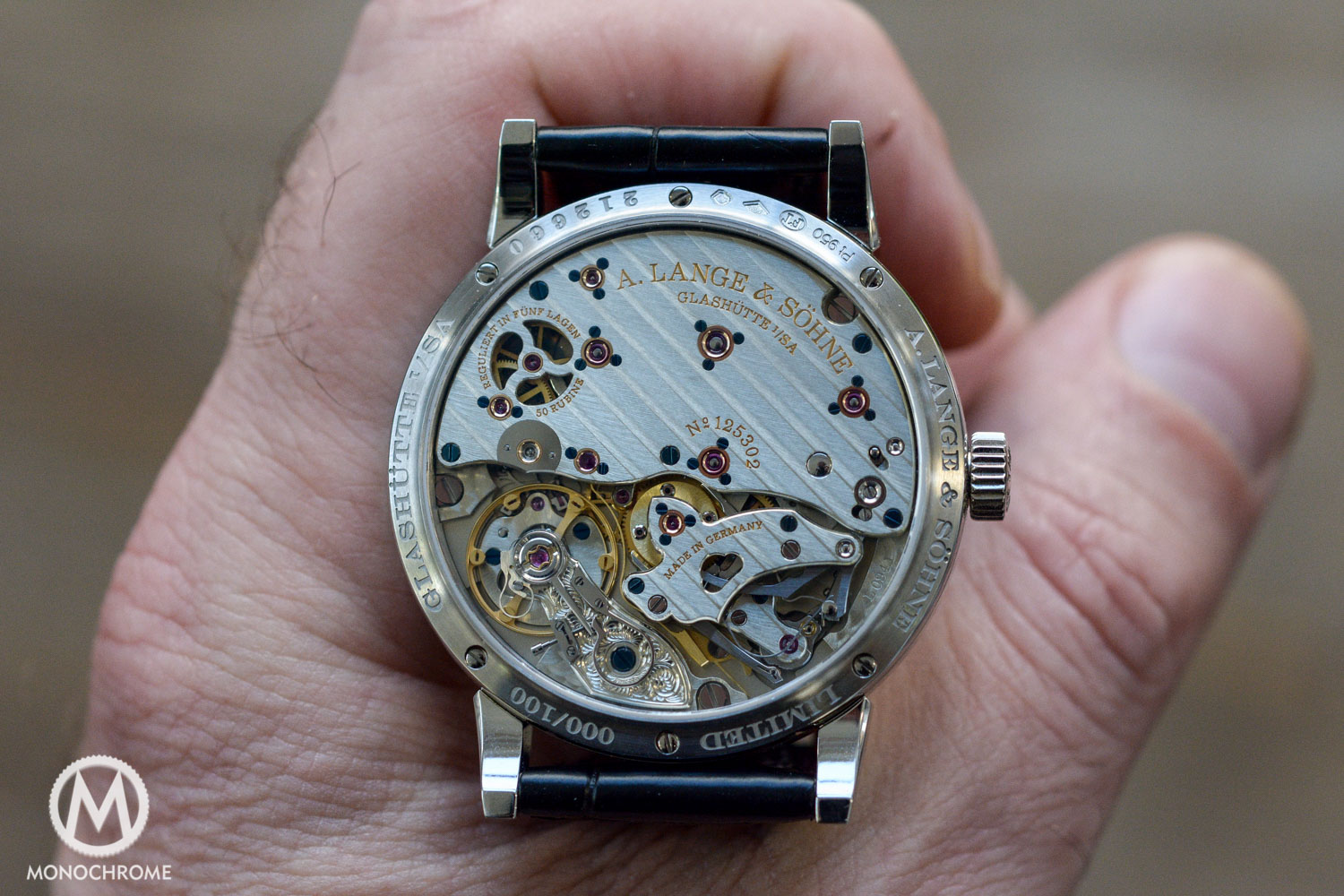
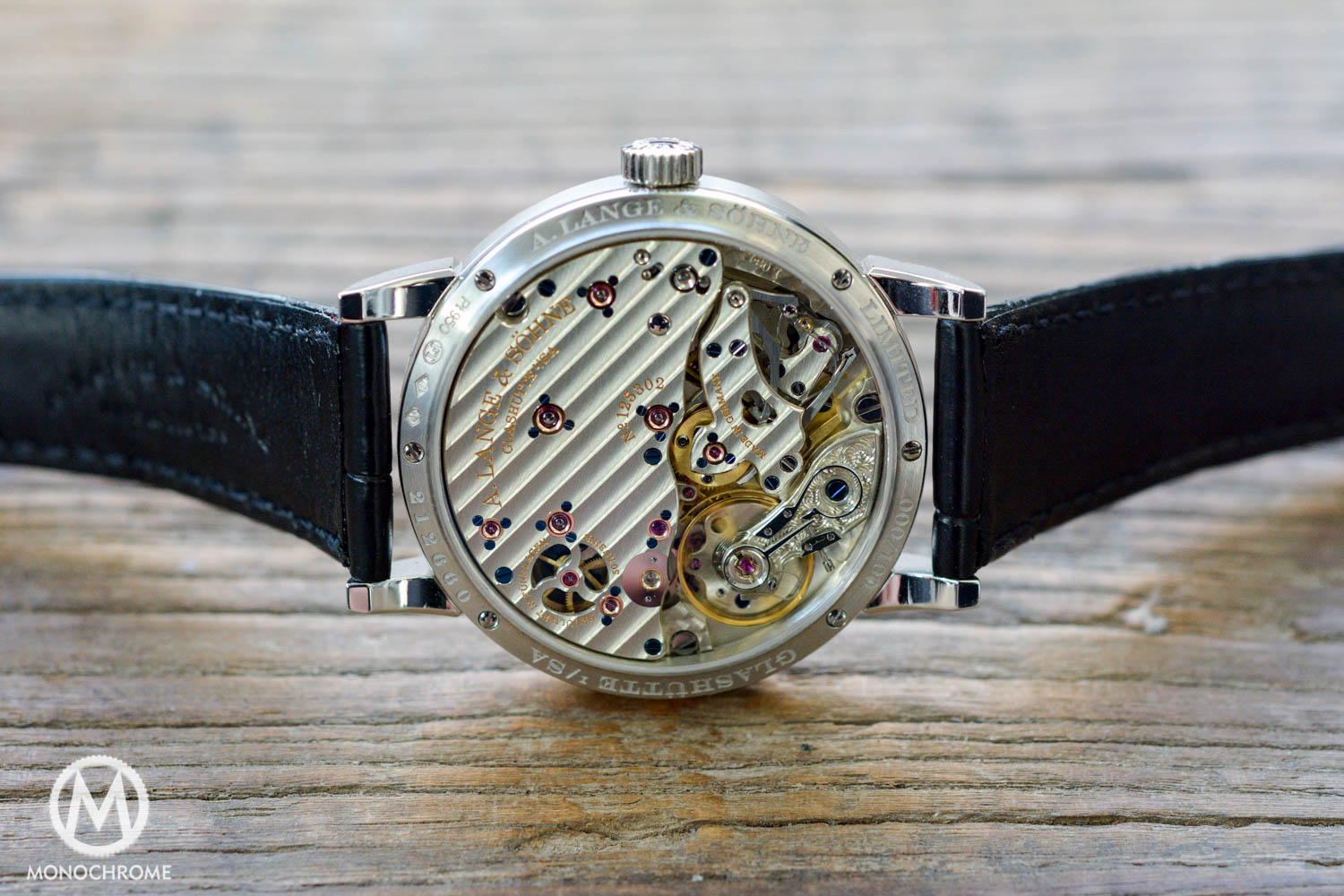
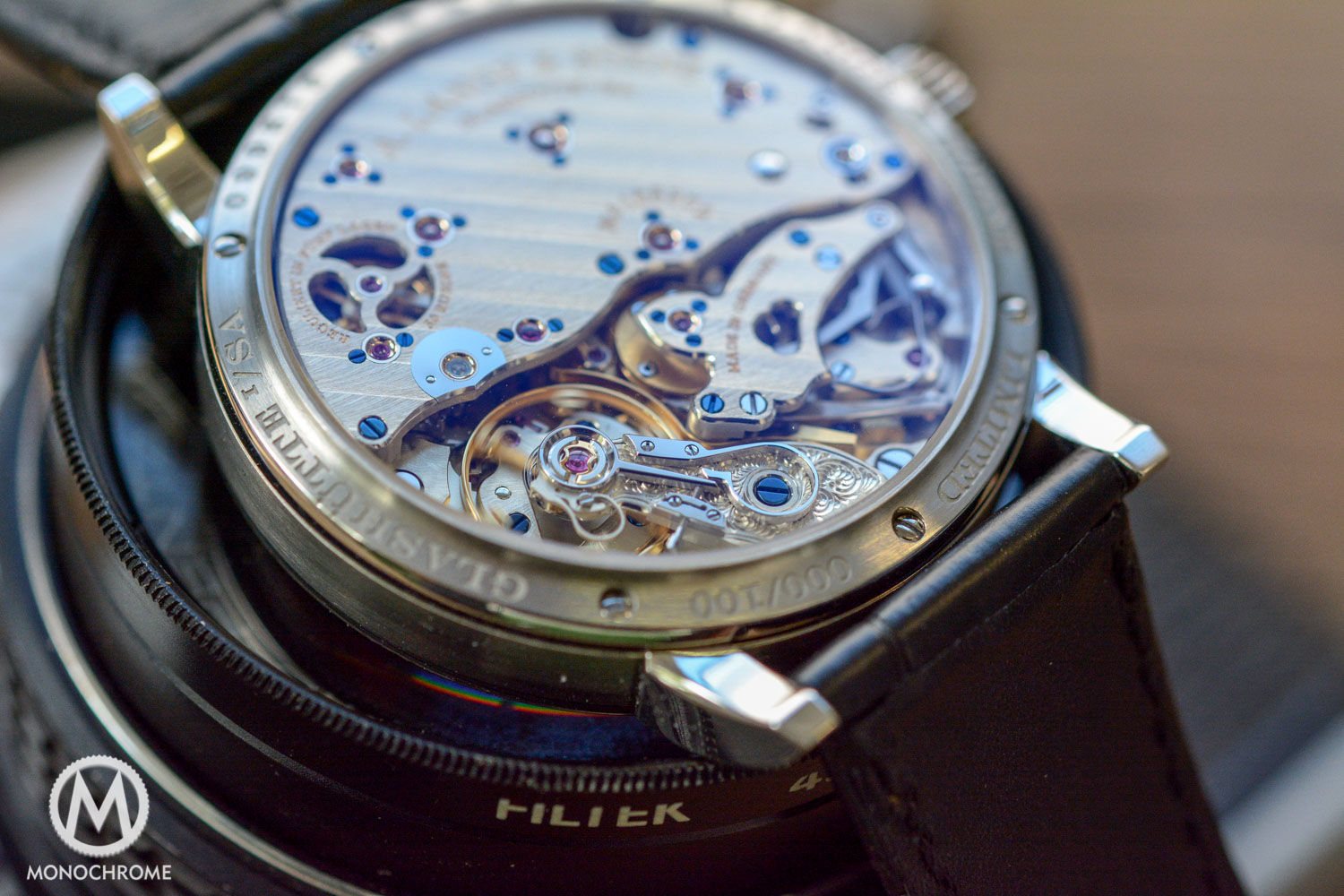
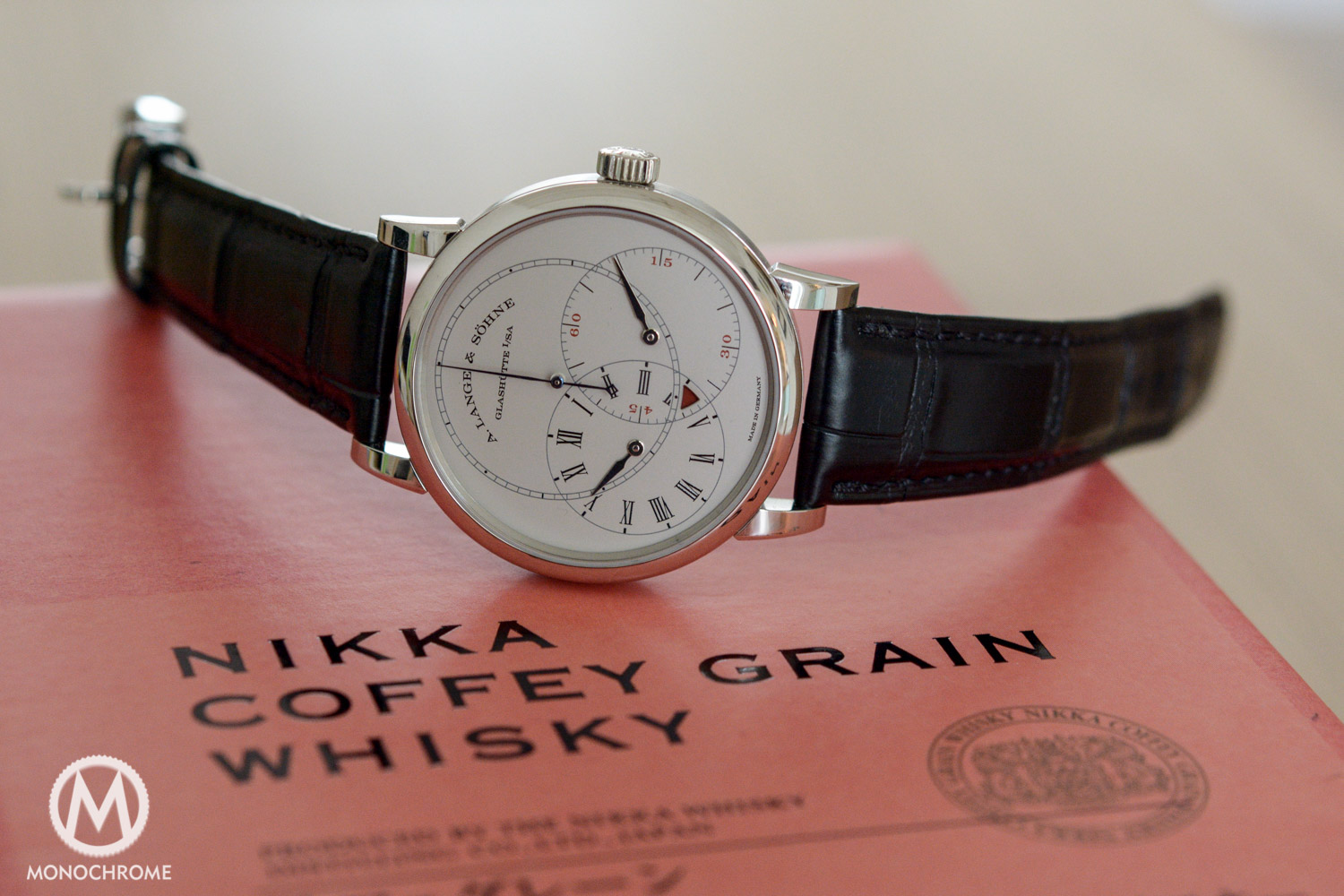
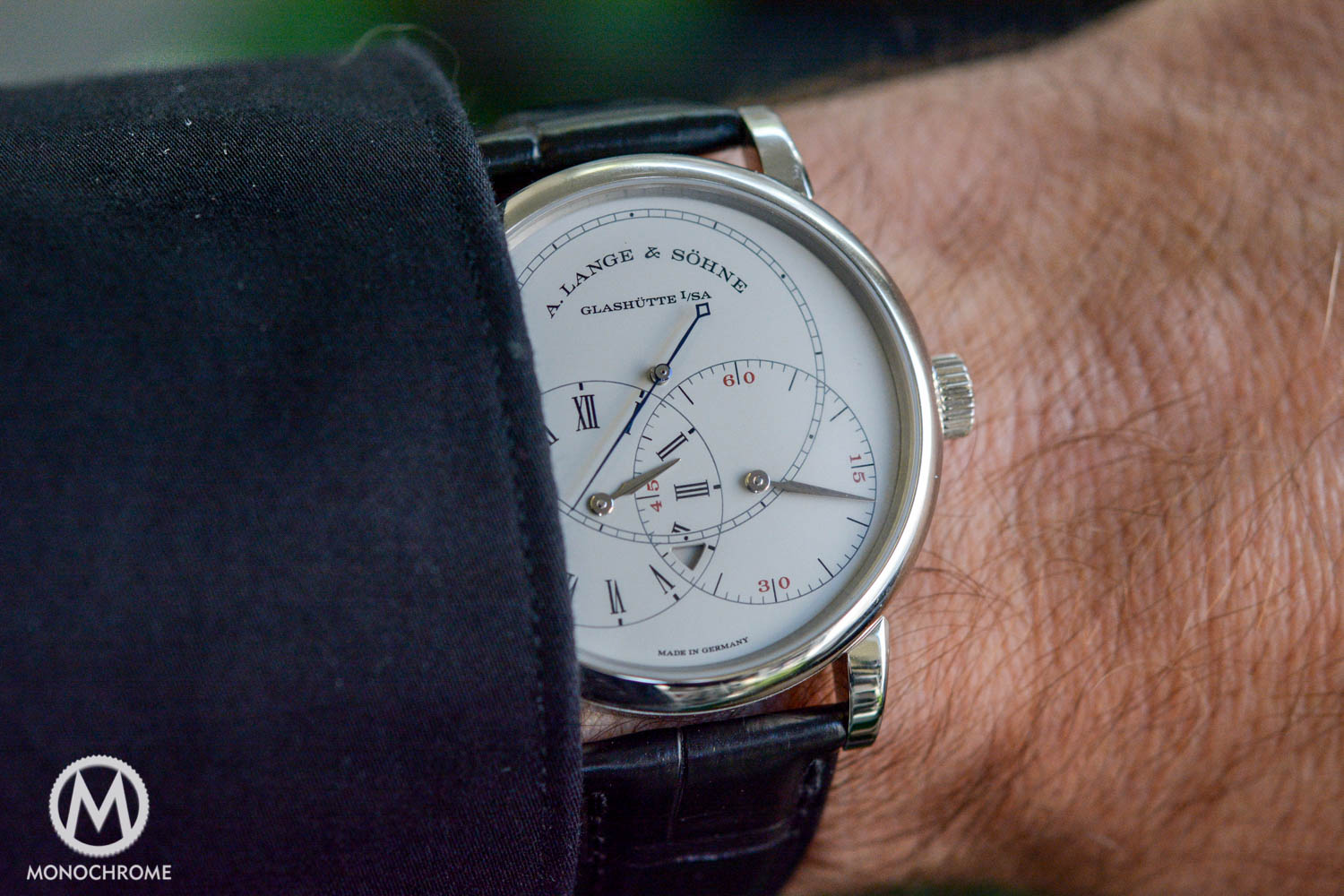
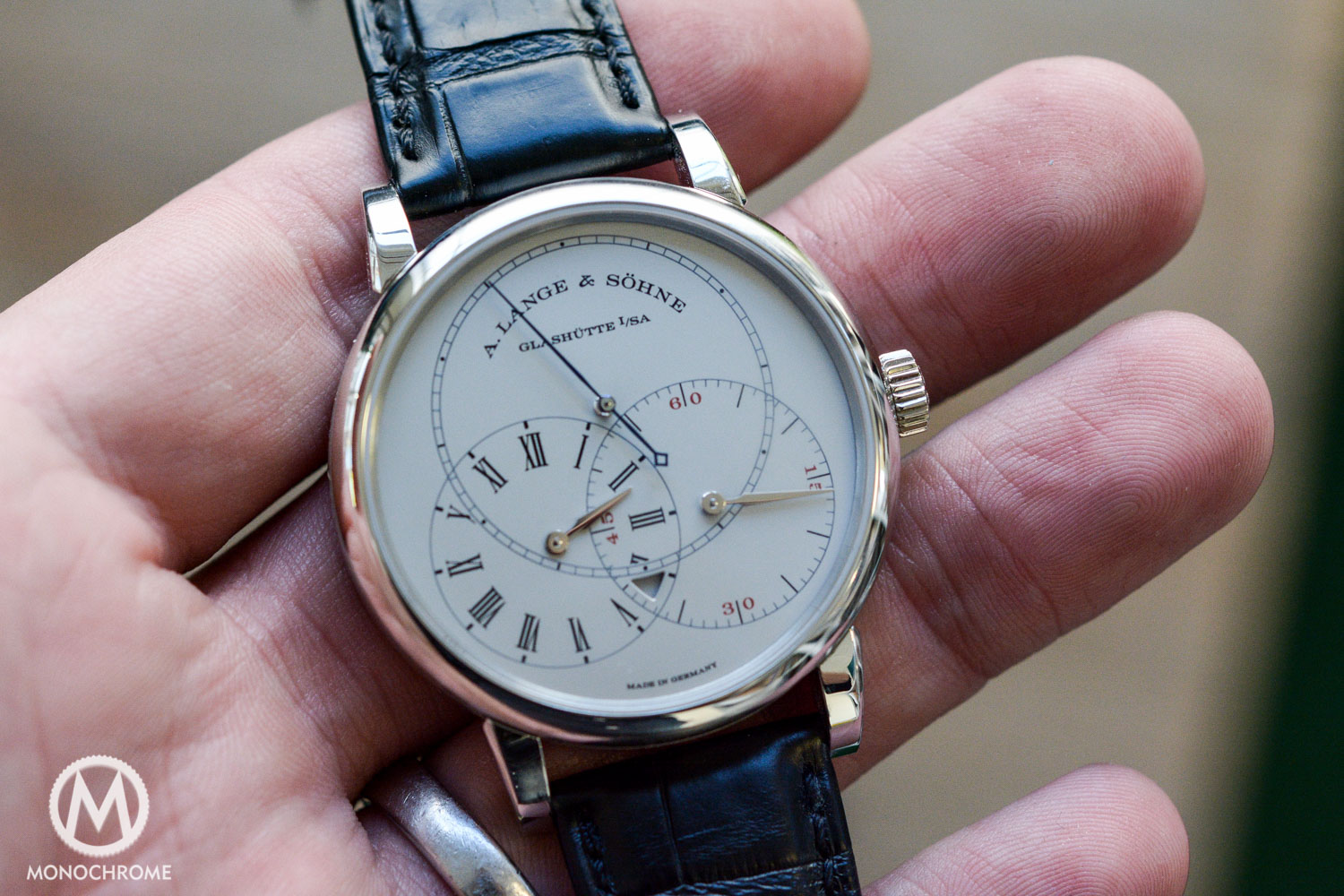
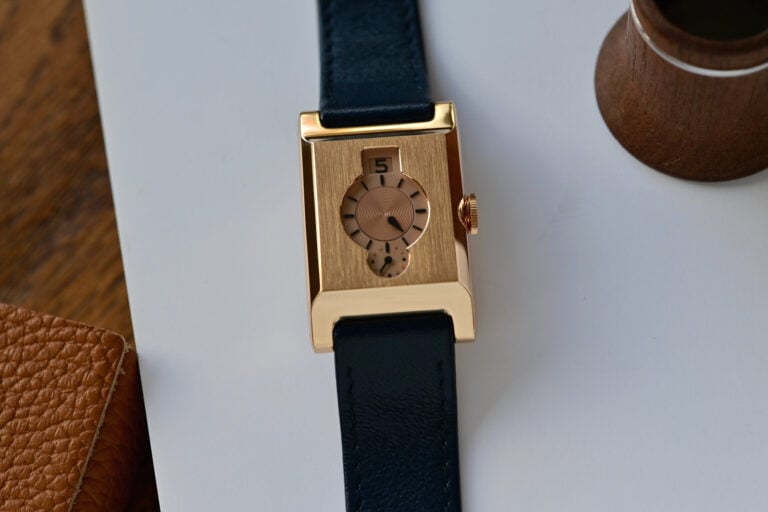
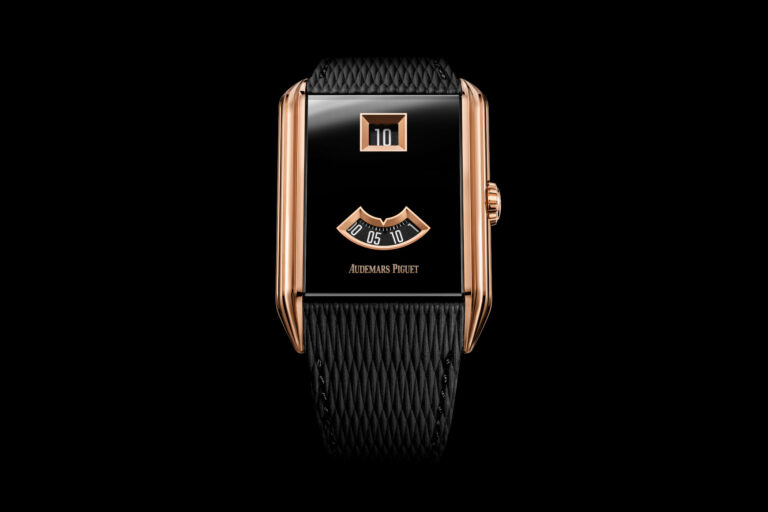
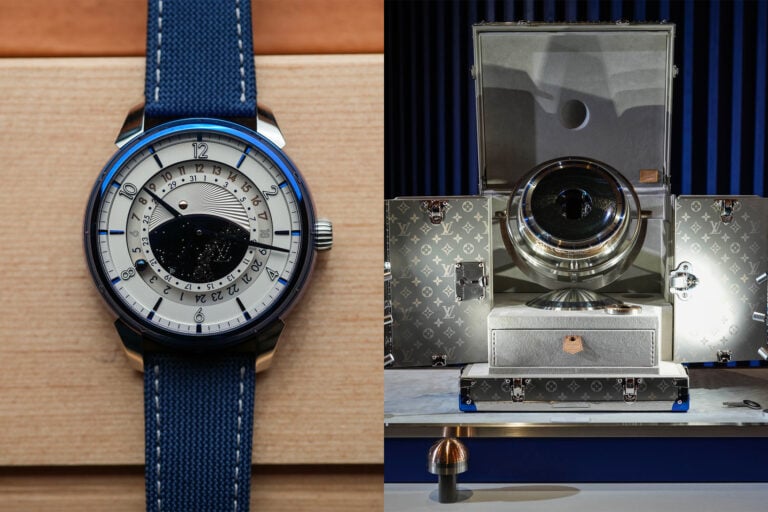
5 responses
This is one watch where the exhibition back is as interesting as the face of the watch.
What a truly lovely piece of art.
Hi Xavier,
thanks for sharing this true masterpiece. It is indeed one of the most beautiful watches I’ve seen recently, it has everything I would wish in a dress timepiece: understated, original but classical dial, complex movement….In one word: perfect!
Regards,
slide68
Hi Peter and Andrea, indeed splendid. It has been a pleasure to review it. Cheers
Thanks Xavier, what a beautiful watch and great article explaing the technicals. 1 Question, are the minute hand and hour hand sweeping, or also `jumping` ??
They deserve a special chapter with the other brands, and not forget the Gronefeld one hertz !
Hi Ron, Thanks. Minutes and hours are sweeping. Secondes mortes are rare mechanisms that indeed deserve attention. And yes the One Hertz is stunning!